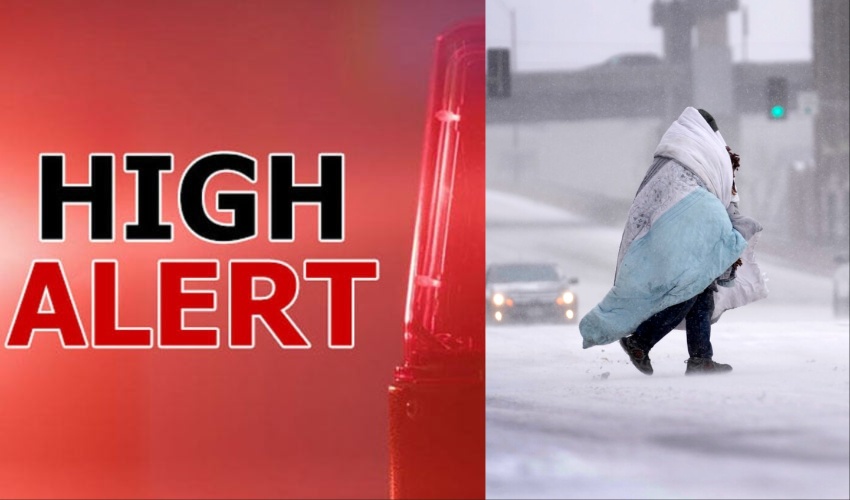Tens of millions of Americans are gearing up for what could be the most severe winter storm in more than a decade, with record-breaking snowfall and plunging temperatures expected to grip vast swathes of the country.
The National Weather Service (NWS) has warned that the storm, currently centred in the Midwest, is set to intensify as it moves eastward in the coming days.
The extreme weather event is being attributed to the polar vortex, a large area of cold air that typically circulates around the Arctic but has descended unusually far south.
“This could be the heaviest snowfall in over a decade for some regions,” said the National Oceanic and Atmospheric Administration, while meteorologist Dan DePodwin of AccuWeather predicted it could mark the coldest January in the US since 2011.
Dangerous cold and heavy snowfall
Parts of Kansas and Indiana are forecast to receive at least 20cm (8 inches) of snow, with blizzard conditions expected to cause “whiteouts” and “impossible driving conditions,” according to the NWS. Areas of the Midwest are bracing for significant disruptions to daily life, including road closures and the risk of motorists being stranded.
As the storm pushes eastward, cities such as Washington, DC, Philadelphia, and Baltimore are preparing for icy conditions and snowfall of up to 30cm (12 inches). Record low temperatures are also expected to linger for days along the East Coast.
The southern states of Mississippi and Florida, which rarely experience severe cold, are on alert for potentially treacherous conditions. Severe thunderstorms may also develop in Arkansas, Louisiana, and Mississippi by Sunday, meteorologists warned.
“Potential disaster”
“This storm has the potential to be a disaster,” said private meteorologist Ryan Maue. “It’s something we haven’t seen in quite a while.”
Air travel is already being affected, with major airlines including American, Delta, Southwest, and United waiving change fees for passengers due to anticipated disruptions.
Safety precautions advised
Authorities have urged residents across the affected regions to exercise caution, avoid unnecessary travel, and prepare for potential power outages. “Stay indoors, stock up on essentials, and ensure heating systems are functioning properly,” officials advised.



























